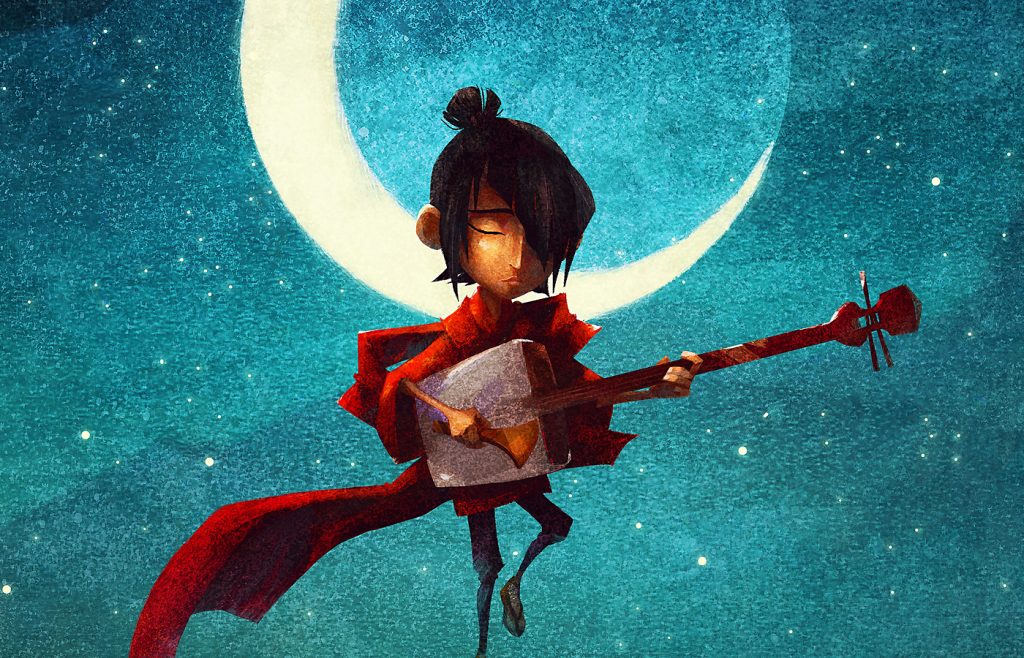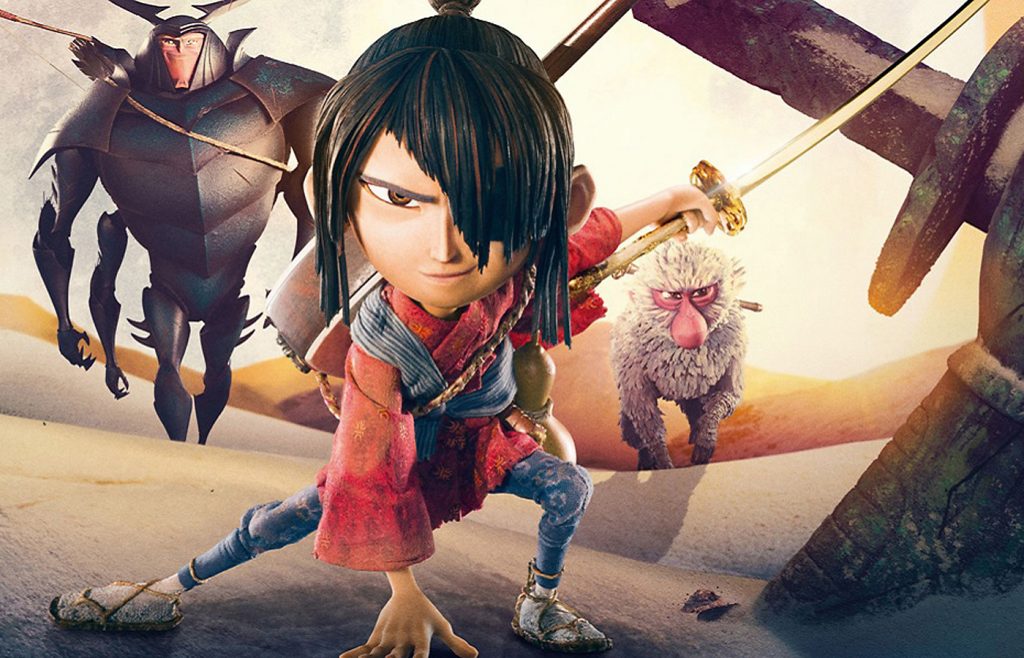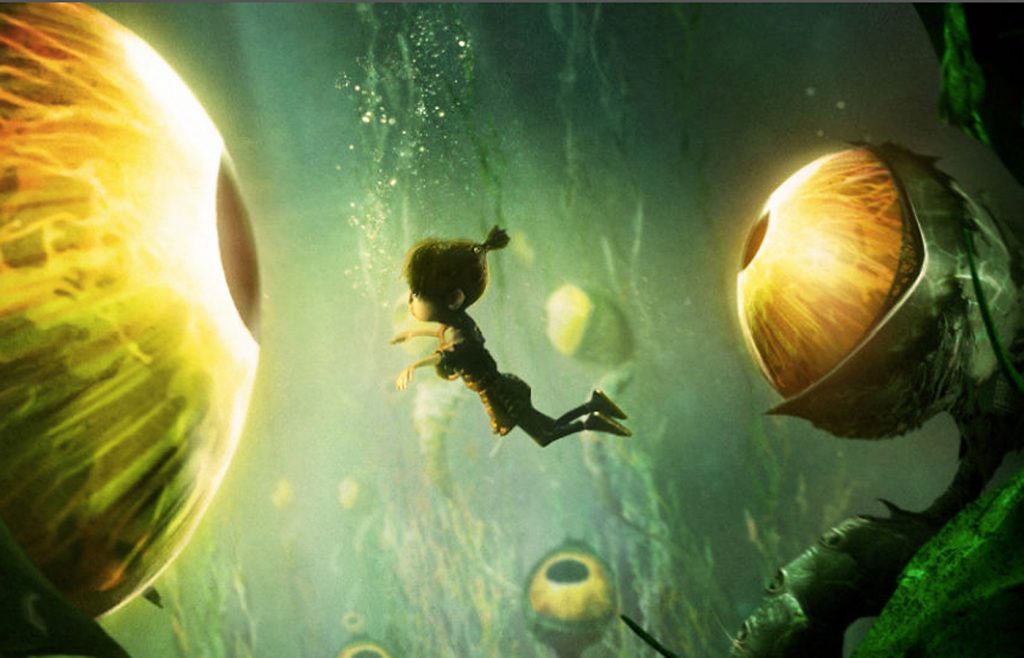
Summer of the Arts presents a free outdoor screening of Kubo and the Two Strings on Saturday, July 21, at 8:50 p.m. on the lawn of MacBride Hall in Iowa City.
Wondrous art can be made when really rich people are cool with losing money. Portland’s Laika Studios is a prime example. Their most recent film, Kubo and the Two Strings, is sure to lose millions but should quickly become a cult classic.
Funded by Nike’s Phil Knight, Laika Studios makes exquisite animated movies that use a claymation-CGI hybrid unlike any other. Additionally, the stories and aesthetics of Laika’s films are more melancholic and elliptical than those of the major studios, having more in common with the work of Miyazaki than the Shrek films.
The film takes place in feudal Japan, where a young boy, Kubo, lives with his beautiful yet ghostly mother in a mountain cave. Every day Kubo descends the mountain to the village, where he plays his two-stringed instrument that magically animates origami figures and tells stories. Kubo’s mother always warns him to not stay out past daylight, so of course Kubo does, and witches of the moon appear to try to capture Kubo and take him to his grandfather, the moon god.

If all of this sounds whimsical, well, it is—extremely. But it may also be the most gorgeous and dazzling film of 2016. The rendered scenery of a fantasy Japan is completely stunning—windswept snow mountains, boats made of leaves upon golden seas, glowing paper lanterns rising above the river. Even if you watched it without sound, Kubo would be captivating.

Beyond the visual splendor, the core of Kubo’s story is a surprisingly mature and empathetic message of family, loss, and imperfection. The moon god and his daughters are icy perfection, and the world of humans is one of failure and disappointment but also one of love and humor. I don’t mean to sound too morbid, but this may be the perfect movie to take a child to see after a grandparent dies. A-
